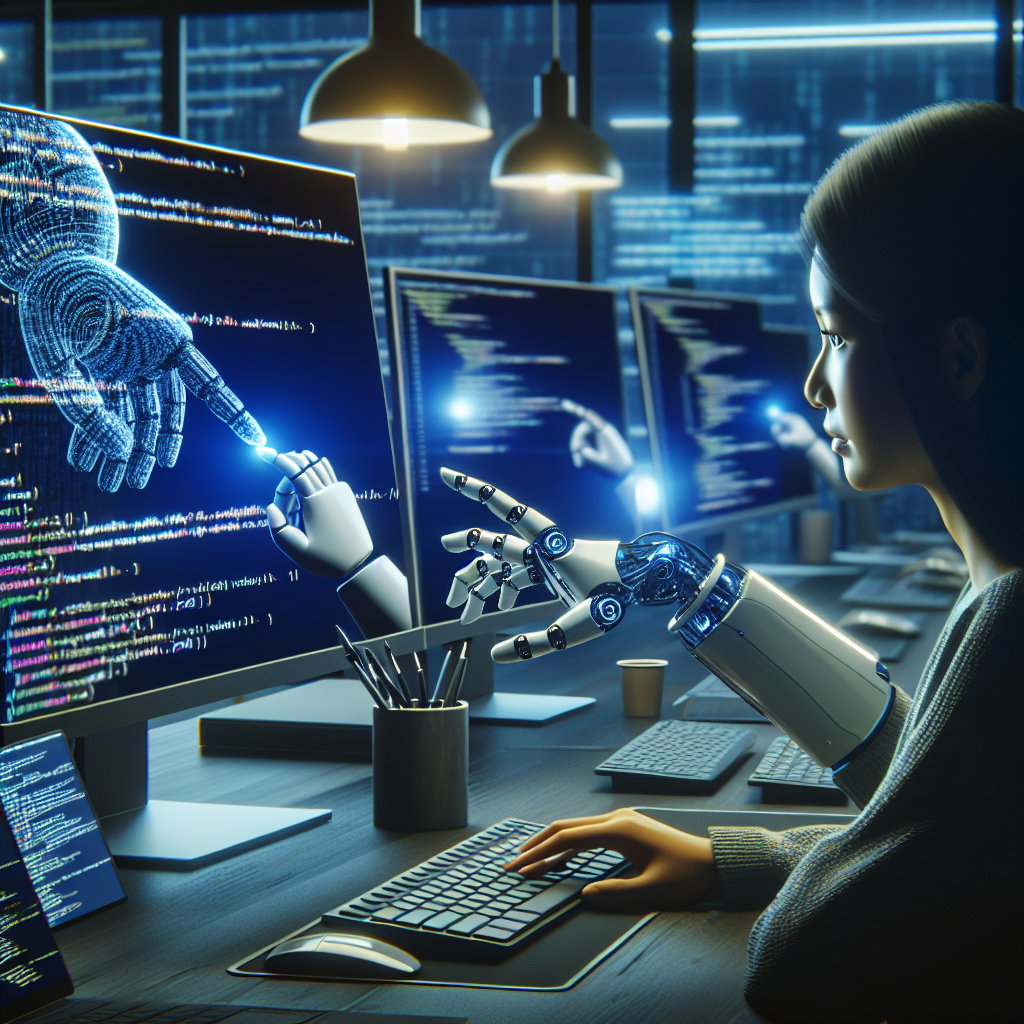Tech Leaders at Anthropic, IBM, and Meta Warn That AI is Coming for Software Developer Jobs
The conversation surrounding the impact of Artificial Intelligence (AI) on the workforce has taken a significant turn as leaders from major tech companies like Anthropic, IBM, and Meta express their concerns about the potential displacement of software developer jobs. As AI technology advances, the once secure positions of developers are now facing uncertainty, raising questions about the future of work in the tech industry.
The Rise of AI and Its Implications for Software Development
Artificial Intelligence is no longer a concept restricted to science fiction; it has become a reality that is reshaping various industries, including software development. The advent of AI tools that can write code, debug, and even design applications has led to a growing fear among software developers: could they be replaced by machines?
During a recent panel discussion, tech leaders from Anthropic, IBM, and Meta voiced their apprehensions regarding the evolving role of AI in software development. They argue that while AI can significantly enhance productivity and efficiency, it also poses a threat to traditional developer roles. As AI systems improve, they may soon possess the capability to perform tasks that were once thought to require human intelligence.
Job Displacement or Job Evolution?
One of the central debates in this discussion is whether AI will lead to job displacement or job evolution. While it’s undeniable that AI can automate repetitive tasks, many experts believe that it will not entirely replace software developers. Instead, it may change the nature of their work.
The fear of job loss remains prevalent, but leaders from these tech giants argue that AI should be seen as a tool that can augment human capabilities rather than a replacement. For example, AI can handle mundane coding tasks, allowing developers to focus on more complex and creative aspects of software design. This shift could lead to the emergence of new roles that require a combination of technical skills and AI proficiency.
The Skills of the Future
As AI continues to permeate the software development landscape, the demand for specific skills is likely to evolve. Developers will need to adapt by acquiring new competencies that align with the changing demands of the industry. Skills in AI and machine learning, for instance, will become increasingly valuable.
Tech leaders emphasize the importance of continuous learning and upskilling for software developers to remain relevant. Understanding how to work alongside AI tools, interpret their outputs, and integrate them into existing workflows will become critical skills. Developers who embrace these changes and enhance their skill sets will likely find themselves in high demand.
The Impacts on Employment Dynamics
The integration of AI into software development is expected to change employment dynamics significantly. While some positions may be automated, the rise of AI could lead to the creation of new jobs in areas that we have yet to fully explore. For instance, roles focused on AI ethics, oversight, and maintenance may emerge as organizations navigate the complexities of AI systems.
Moreover, the increasing reliance on AI in software development can lead to a broader shift in employment patterns across the tech industry. Companies may find themselves sourcing talent from a more diverse pool, as the focus expands beyond traditional coding skills to include interdisciplinary expertise that combines technology with other fields.
The Importance of Ethical Considerations
As we navigate the intersection of AI and software development, ethical considerations come to the forefront. The tech leaders from Anthropic, IBM, and Meta highlighted the need for responsible AI development that prioritizes fairness, transparency, and accountability. The implementation of AI should not only enhance productivity but also ensure that the rights and jobs of individuals are protected.
Ensuring that AI systems are trained on diverse datasets, avoiding algorithmic biases, and maintaining a human-centered approach to technology are essential factors in mitigating the potential negative impacts of AI on employment.
Preparing for the Future
Organizations must proactively prepare for the integration of AI into their workflows. This involves investing in training programs that equip employees with the necessary skills to work alongside AI technologies. Companies should foster an environment that embraces innovation and encourages employees to experiment with new tools and technologies.
Moreover, collaboration between educational institutions and tech companies will be crucial to ensure that the next generation of developers is well-equipped to thrive in an AI-enhanced environment. Curricula should be designed to emphasize the importance of AI literacy and foster a mindset of adaptability to change.
Conclusion
The landscape of software development is undoubtedly changing with the rise of AI technologies. While concerns about job displacement are valid, it is essential to recognize that AI presents opportunities for growth and innovation as well. By embracing these challenges and adapting to new realities, software developers can position themselves as valuable assets in an AI-driven world.
Tech leaders from Anthropic, IBM, and Meta remind us that the focus should not solely be on the risks but also on the potential for AI to enhance human capabilities. By fostering a culture of continuous learning, ethical considerations, and interdisciplinary collaboration, the tech industry can navigate this transition successfully and create a future where humans and AI work together harmoniously. As this evolution continues, the role of software developers will undoubtedly transform—potentially leading the way to more creative and impactful contributions to technology and society at large.



